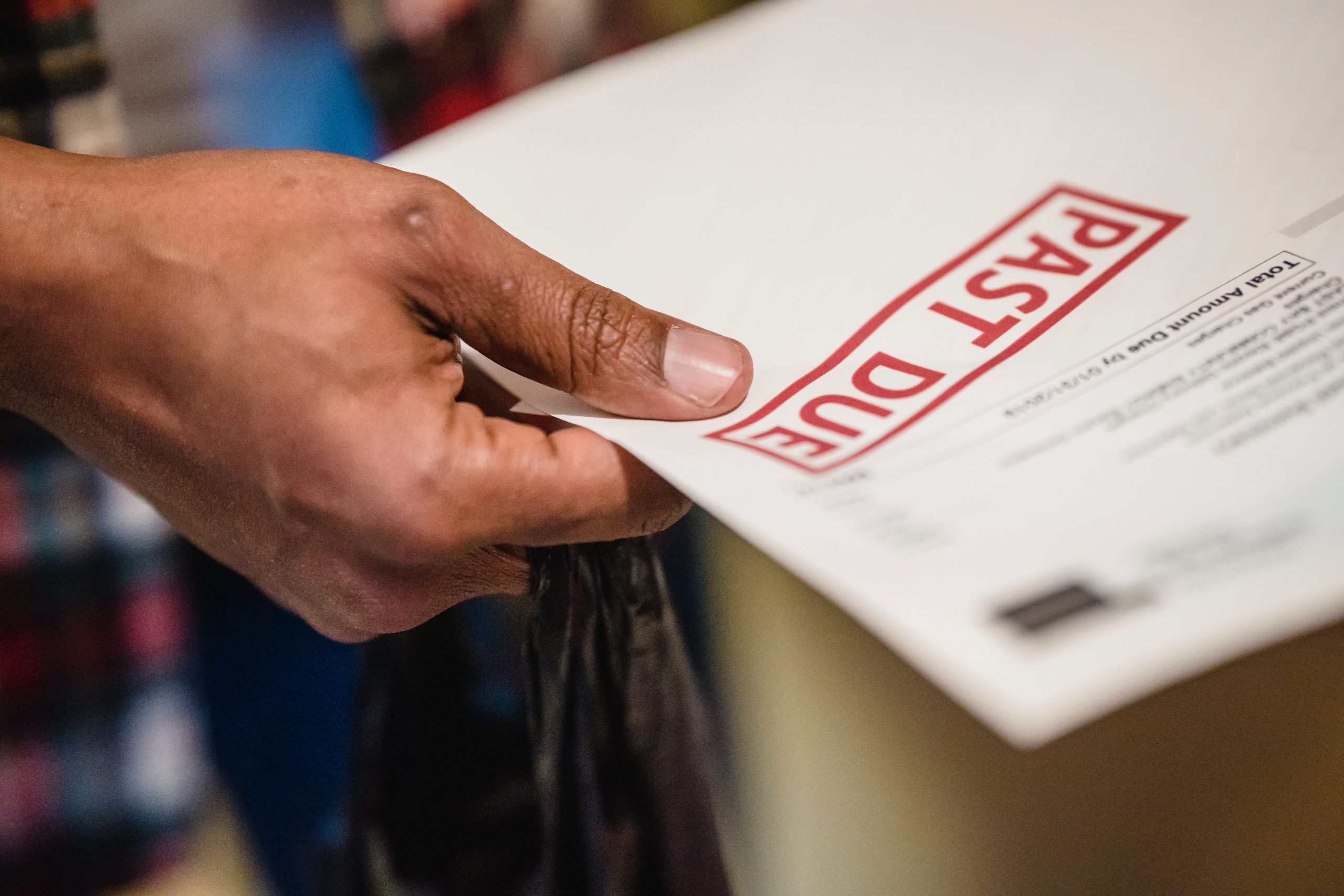
Debt is a financial burden that can have serious consequences for companies, both borrowers and lenders. While it may seem like an inevitable part of doing business, there are steps that can be taken to prevent debt from occurring in the first place.
By understanding the root causes of debt and taking proactive measures, both parties can protect the company and themselves from financial strain and damaging credit scores. In this article, we’ll discuss the differences between good and bad debt, how to prevent bad debt, when to call a debt collection agency and more. By following these strategies, you can reduce your risk of bad debt and safeguard your business health.
What is a bad debt?
Bad debt in business refers to money that is owed by customers or clients but is unlikely to be collected or repaid. It typically arises when a borrower fails to fulfil their financial obligations, either due to financial difficulties, insolvency, or other reasons or circumstances that prevent them from meeting their debt or loan repayment commitments.
Businesses often extend credit to customers, for example by allowing them to make purchases on credit and pay at a later date. While this can facilitate transactions and foster customer relationships, it also introduces the risk of outstanding balances, and ultimately, bad debt. When a customer fails to repay the amount of money owed, it becomes a bad debt for the business.
Bad debt can occur for various reasons, including economic downturns, changes in customer financial situations, or poor credit management by the business. It can have significant consequences on the financial situation of a business, impacting cash flow, profitability, working capital, and overall stability. Businesses typically make provisions to avoid bad debts in their financial statements to account for the possibility of not recovering the full amount owed.
Is there good debt?
Good debt is essentially an investment in the future prosperity of a business venture. It typically involves borrowing money to fund initiatives that have the potential to generate positive returns. Examples of good debt include:
- Business Expansion: Taking loans to expand operations, open new branches, or enter new markets can be considered good debt if the expansion contributes to increased revenue.
- Capital Expenditures: Borrowing to purchase or upgrade essential assets such as machinery or technology that enhance productivity and efficiency.
- Education and Training: Investing in the skills and knowledge of employees through loans for training programs, workshops, or higher education can be seen as an investment in the workforce.
How to prevent bad debts in business
Preventing bad debt in business requires a multifaceted approach. Here are effective strategies to avoid bad debt:
- Credit Checks: Conduct in-depth credit checks before entering into partnerships with clients. Evaluate their financial stability, payment history, and overall creditworthiness.
- Clear Credit Policies: Clearly outline payment terms in agreements. This reduces ambiguity and ensures that both parties have a shared understanding of expectations. This helps minimise the risk of overdue payments evolving into bad debt.
- Tight Credit Control: Implement a robust credit control system to monitor customer credit. Regularly assess credit limits and ensure that they align with the customer’s financial capacity.
- Set and Enforce Payment Terms: Set clear payment terms and enforce them consistently. This practice ensures that customers adhere to agreed-upon timelines, reducing the risk of delayed or non-payment.
- Filter Customers: Evaluate customers based on their credit history and reliability. Identify red flags and exercise caution with customers who may pose a higher risk of default. Be selective in forming partnerships, focusing on clients with a positive credit track record.
- Require Up-Front Payments: Request up-front payments or deposits to secure transactions and prevent outstanding balances. This upfront commitment from customers provides a degree of security and reduces the risk of non-payment.
Is there any way to reduce business debt?
Reducing business debt requires strategic planning and disciplined financial management. Here’s what you can do:
- Identify and Prioritise Debts: Create a detailed list of all outstanding debts, including creditors, amounts, and interest rates. Prioritise debts based on interest rates or urgency. This allows businesses to allocate resources more efficiently, focusing on high-priority debts first.
- Categorise and Organise Debts: Organise debts into categories, such as short-term and long-term obligations. This will help in developing a structured approach to address each type of debt effectively.
- Reassess Your Budget: Conduct a thorough reassessment of your company’s budget. Understand income, expenses, and cash flow patterns to identify areas where costs can be reduced. Make necessary adjustments to the budget by cutting non-essential expenses and reallocating resources to debt repayment.
- Reduce Spending and Increase Income: Implement measures to reduce unnecessary costs. Evaluate operational expenses and identify areas for cost-cutting without compromising essential functions. Simultaneously, explore opportunities to increase revenue. This might involve launching new products or services, expanding the customer base, or enhancing existing offerings.
- Negotiate with Creditors: Engage in open communication with creditors. Discuss the possibility of renegotiating interest rates or extending repayment terms. Seek flexible arrangements that align with the business’s financial capabilities. Creditors may be willing to work collaboratively to find mutually beneficial solutions.

Tips for Effective Debt Recovery
Establishing clear and open lines of communication with debtors is essential for successful debt service and recovery. Adopting proactive communication strategies can foster a cooperative environment and improve the likelihood of receiving payments.
- Regular Follow-ups: Implement a systematic follow-up process, sending reminders and notifications before payment deadlines.
- Understanding Financial Hardships: Engage in empathetic conversations with debtors to understand any financial challenges they may be facing, allowing for the exploration of mutually beneficial solutions.
- Offering Flexible Repayment Plans: Tailor repayment plans to accommodate debtors’ financial situations, making it more feasible for them to meet their obligations.
Negotiation skills also play a crucial role for companies in debt. Businesses and investors can explore various negotiation and settlement techniques to reach agreements that are agreeable to both parties.
- Open Dialogue: Initiate open and honest discussions with debtors to find common ground and mutually beneficial solutions.
- Discounts and Settlements: Consider offering discounts or settlements to encourage debtors to settle their obligations promptly.
- Legal Recourse: If necessary, explore legal avenues for debt recovery, such as pursuing a court judgment or employing debt collection services.
Can small business owners overcome debt?
Yes, small business owners can overcome debt by adopting strategic and proactive measures. Here are some top tips to help navigate the path to debt recovery:
- Evaluate the Debt Situation: Begin by assessing the extent of the debt. Compile a comprehensive list of outstanding obligations, including amounts owed and interest rates. Then, conduct a thorough financial analysis to understand the business’s current financial health, cash flow, and debt service capabilities.
- Prioritise High-Interest Debts: Identify and prioritise debts with high interest rates. Allocate resources to pay off these high-cost debts first, minimising overall interest payments. Engage in open communication with creditors. Negotiate favourable terms, such as reduced interest rates or extended repayment periods, to ease the burden.
- Streamline Your Operations: Evaluate and streamline business operations to enhance efficiency. Identify areas where costs can be reduced without compromising essential functions. Trim non-essential expenses to redirect funds towards debt repayment.
- Explore New Revenue Streams: Seek opportunities to diversify revenue streams. Consider launching new products or other services, entering new markets, or enhancing existing offerings to generate additional income. Focus on customer acquisition and retention strategies to expand the customer base and increase sales.
- Implement Strict Budgeting Practices: Monitor and control expenses, ensuring that the business operates within its financial means. Prioritise effective cash flow management. Ensure timely invoicing, follow up on outstanding payments, and negotiate favourable payment terms with suppliers.
- Seek Professional Assistance: Consider seeking guidance from financial advisors, consultants, or debt collection services. They can provide expert insights and strategies tailored to the business’s unique situation. If you’re looking to recover debts from delinquent customers or insights into managing your credit, professional debt collection agencies, like us here at JMA can offer insight.
When to take legal action
We highly recommend using legal action as only a last resort if you’re collecting debt, as it can be costly and time-consuming, and may not always result in the desired outcome. Generally, legal action should be reserved for cases where other methods of debt collection, such as negotiating a payment plan or hiring a collections agency, have been unsuccessful.
Why you should choose JMA Credit Control
JMA Credit Control employs a team of skilled professionals who are trained in the latest debt collection techniques and strategies. We understand the challenges that businesses face when it comes to debt collection and can provide customised solutions to meet your needs.
If you are tired of dealing with unpaid debts and want to recover what is rightfully owed to you, don’t hesitate to contact JMA Credit Control. We will work with you to come up with a plan to get your debts paid and get your business back on track.
Our services are available to small to medium-sized businesses in Australia – no matter the industry – so take our advice, if your business is struggling with delinquent clients and unpaid invoices, give us a call today.





















